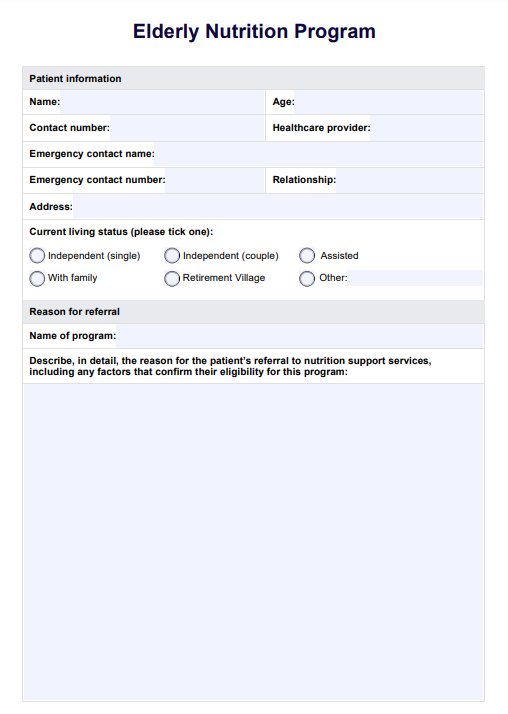The goal of these programs is to ensure that seniors have access to healthy food and nutrition education to support their health and enable them to live independently. These initiatives enhance community engagement among older people, fostering social connections and combating isolation.

Elderly Nutrition Program
Access a free Elderly Nutrition Program template, a crucial form for referring seniors to nutritional support initiatives.
Elderly Nutrition Program Template
Commonly asked questions
Elderly Nutrition Programs may be run by or in partnership with senior centers, or they may be independent volunteer or nonprofit organisations. They may be managed by a multidisciplinary team of nutritionists, volunteers, and social workers.
Nutritional recommendations for older adults emphasize a balanced intake of vitamins and minerals, especially calcium, vitamin D, fiber, and protein, while managing calorie needs to prevent undernutrition or obesity. A balanced diet for seniors typically includes a variety of fruits, vegetables, whole grains, lean protein, and low-fat dairy, with limited salt and sugar intake, to support healthy aging and maintain strength and vitality.
EHR and practice management software
Get started for free
*No credit card required
Free
$0/usd
Unlimited clients
Telehealth
1GB of storage
Client portal text
Automated billing and online payments











